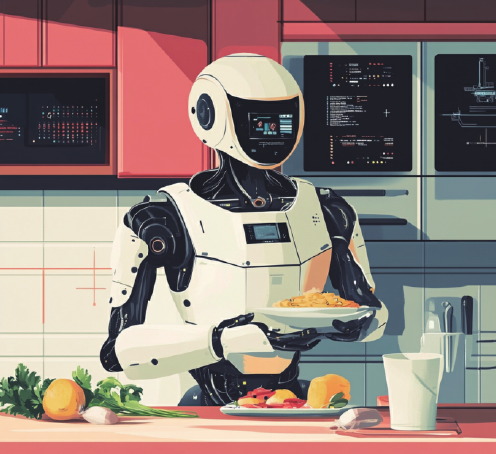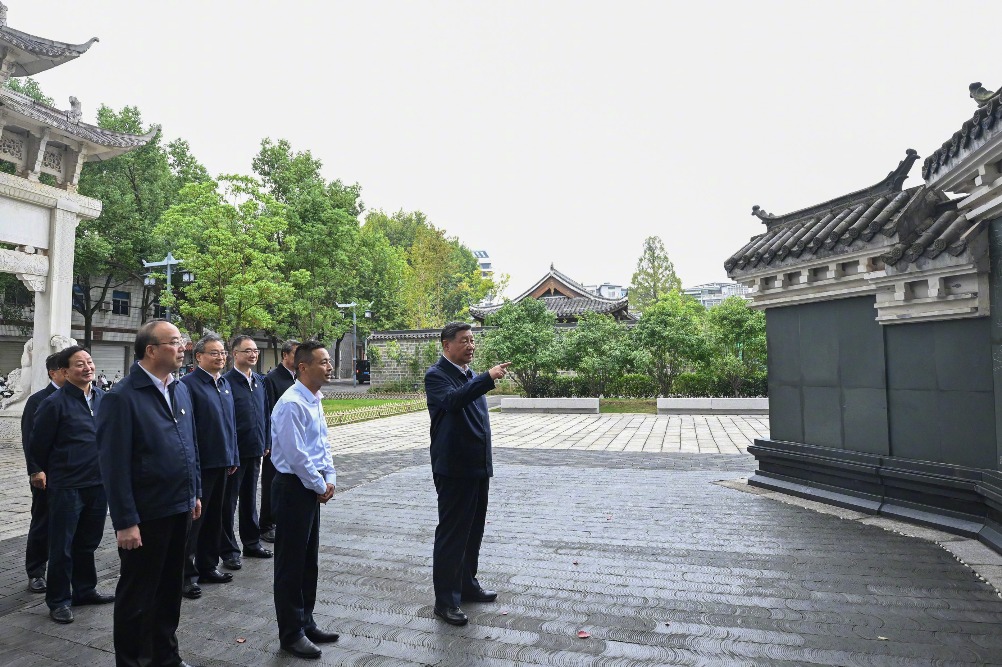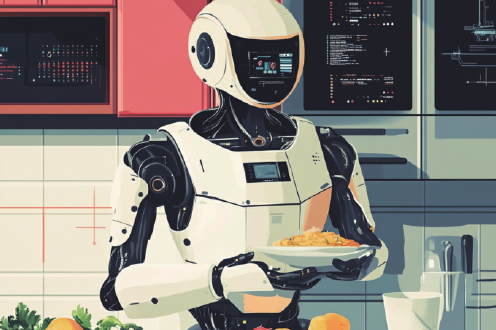Smart catering transforming our kitchens


The catering industry is evolving toward greater diversification, specialization and intelligence with the advancement of society and application of artificial intelligence.
As we stride into the future, we witness the evolution of the catering industry. From the manual operation of the 1.0 era to the widespread mechanization of the 2.0 era, and then to the parallel standardization and digitalization of the 3.0 era, we are stepping into a brand new stage: Smart Dining 4.0. The transformation of the catering industry is inseparable from the development of the food industry. The iterative advancements in cooking equipment and related technologies are the key drivers behind the changes in the catering industry.
In the Smart Dining 4.0 era, innovation meets tradition in the most unexpected ways, and a meal is not just a satiating experience for the senses but also a symphony of technology and taste, curated to perfection.
AI is enhancing our dining experience like never before. Imagine stepping into a restaurant where the hustle and bustle of taking orders is replaced by warm lighting and soothing music. After a simple scanning, the intelligent ordering system can quickly recognize your identity, favorite dishes, dietary preferences, and even your mood. That's the power of AI-driven personalized dining.
Using algorithms such as collaborative filtering, natural language processing and facial recognition, restaurants can now quickly identify customers, and tailor their menus to suit individual tastes. More surprisingly, virtual reality (VR) and augmented reality (AR) are used to create an immersive dining atmosphere. From 360-degree projections that transport you to a tropical island to AR menus that bring dishes to life, the possibilities are endless.
Inside the kitchen, AI is revolutionizing the way food is prepared. Digital twins of recipes, combined with advanced robotics, can mimic the cooking techniques of master chefs, bringing the essence of Chinese cuisine to robotic kitchens. These robots can churn out dishes with precision and consistency, ensuring every meal is a delightful experience.
Moreover, AI is making food safety a top priority. With the help of technologies such as hyperspectral and multispectral imaging, near-infrared spectroscopy and computer vision, restaurants can now quickly assess the quality and safety of ingredients. This not only reduces food waste but also ensures that only the best ingredients make it to your plate.
As we move toward a more health-conscious society, AI is playing a pivotal role in nutritious meal planning. By analyzing consumers' dietary habits and health data, AI-powered systems can create personalized meal plans that cater to individual health needs.
On the operational side, AI is making restaurants more efficient. Smart inventory management systems can predict stock levels and order replacements in real time, reducing waste and ensuring that the kitchen is always stocked with fresh ingredients. Also, AI-powered analytics can help restaurants optimize their pricing policy, menu offerings and staff numbers.
Smart Catering 4.0 has been expanding its scope. From personalized meal preparation to precise nutritional matching, from flexible cooking processes to humanized dining services, and from visualized operational monitoring to intelligent analytical decision-making, every aspect is infused with technology. You can experience the joy of cooking in a virtual world using VR and AR technologies or enjoy an immersive dining experience. And restaurant managers can monitor the operational status of the restaurant in real time using intelligent management systems, optimizing supply chain management and improving service efficiency.
The 5,000-year Chinese civilization has cultivated a rich and profound culinary culture, which prompts the Chinese people to have extremely high expectations when it comes to gastronomy.
Therefore, the transformation and upgrading of the catering industry should meet this cultural demand.
Building a Smart Catering 4.0 with Chinese characteristics can meet people's evolving demand for food and the desire for a better life; it can also help the people to inherit and carry forward the excellent traditional Chinese culture, and implement the "Healthy China 2030" plan.
The author is an associate professor at the College of Food Science and Nutritional Engineering, China Agricultural University
The views don't necessarily reflect those of China Daily.
If you have a specific expertise, or would like to share your thought about our stories, then send us your writings at opinion@chinadaily.com.cn, and comment@chinadaily.com.cn.

































